November 18, 2024
AI agents gain traction in the expansion of generative technology in enterprises
The Horizontes cycle, organised by Ayesa’s Innovation team and the Royal Sevillian Academy of Sciences, is holding its third conference on AI and robotics.
The director of the GRVC Robotics Laboratory at the University of Seville and scientific director of the Advanced Centre for Aerospace Technologies FADA-CATEC, Aníbal Ollero, calls for more investment in research so as not to lose leadership in fields where Spain and Europe have made great progress.
Experts from Mercedes Benz, Cosentino and Kutxabank explained how these technologies are revolutionising customer experience, decision-making and productivity.
Artificial Intelligence (AI) – especially generative AI – has started a global race because of its potentially advantageous application in business processes. And in the context of this expansion, AI agents are taking centre stage.
This was made clear on the third day of the Horizontes conference cycle, organised by Ayesa’s Research, Development and Innovation team and the Royal Sevillian Academy of Sciences (RASC), where it was explained that this technology is revolutionising customer experience, decision-making and productivity.
During the main conference, Aníbal Ollero, director of the GRVC Robotics Laboratory at the University of Seville and Scientific Director of the Advanced Centre for Aerospace Technologies FADA-CATE, focused on the progress made in the creation of AI-powered robots. “The main objective is not to increase productivity. Their focus has to be on tasks that are difficult for humans. And the really tricky part is getting machines to cooperate with people”.
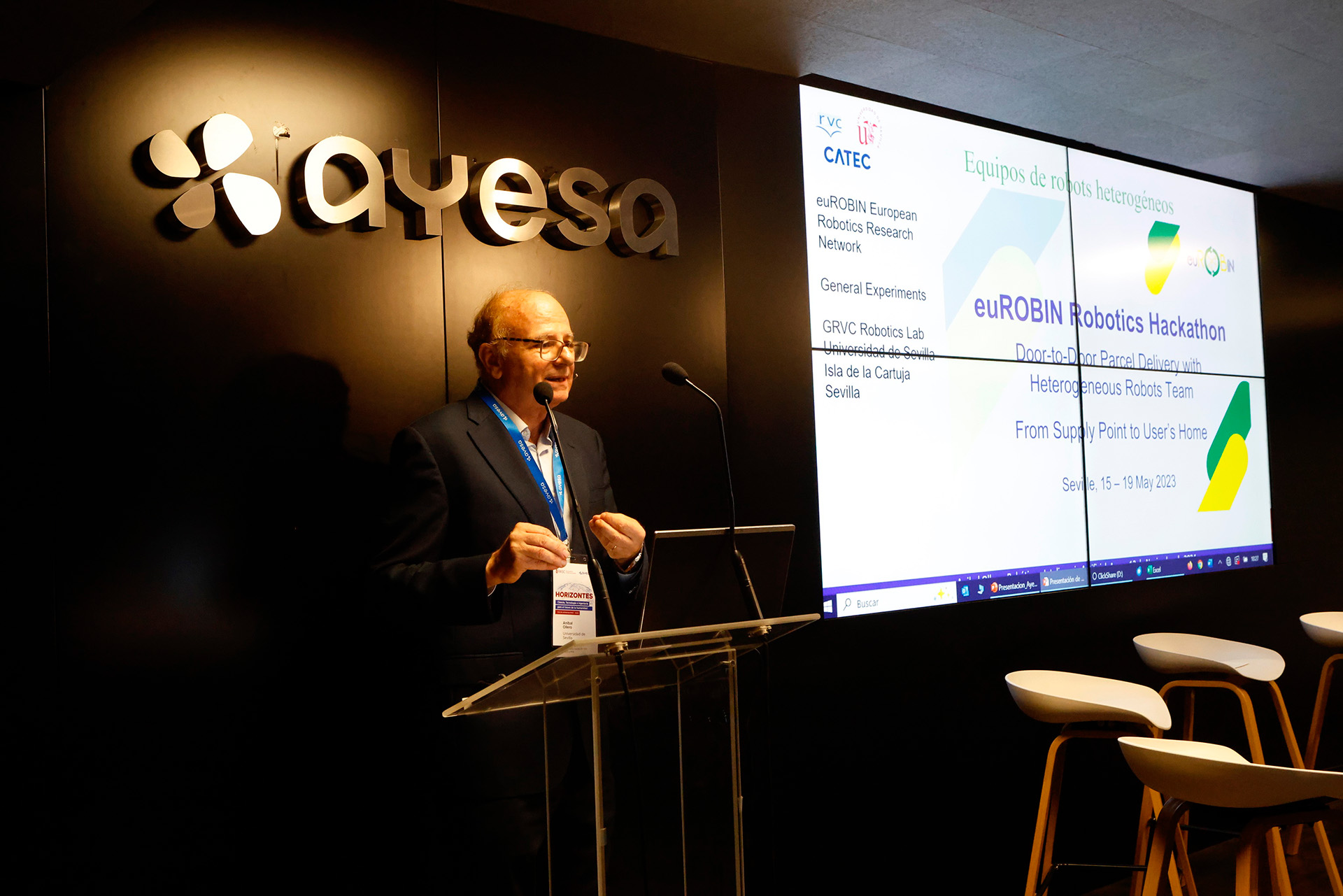
In this line, he added that he is leading the EuRobin initiative, through which he has set up a laboratory in the PCT Cartuja (Seville), where they have developed the world’s first robotic and smart bird. “In order to interact with humans they have to be safe and, for that, they have to be made of soft materials. It is a bio-inspired prototype drone with flapping wings and amazing manoeuvrability. In addition, it does not waste energy, but uses it instead”.
Regarding aerial robotic handling for work at height, he said that ‘this field has given us a lot of satisfaction because it has a real application. We have been doing research since the 1990s, but in 2011 we created a discipline. Of the world’s top ten experts, three are in our laboratory.
“Our robots can be used to maintain energy infrastructures or industrial plants. They are able to take measurements of corrosion or cracks in a viaduct, as well as follow the power line with AI techniques. The only task the operator does is to press a button, the system calculates all the inspection paths”.
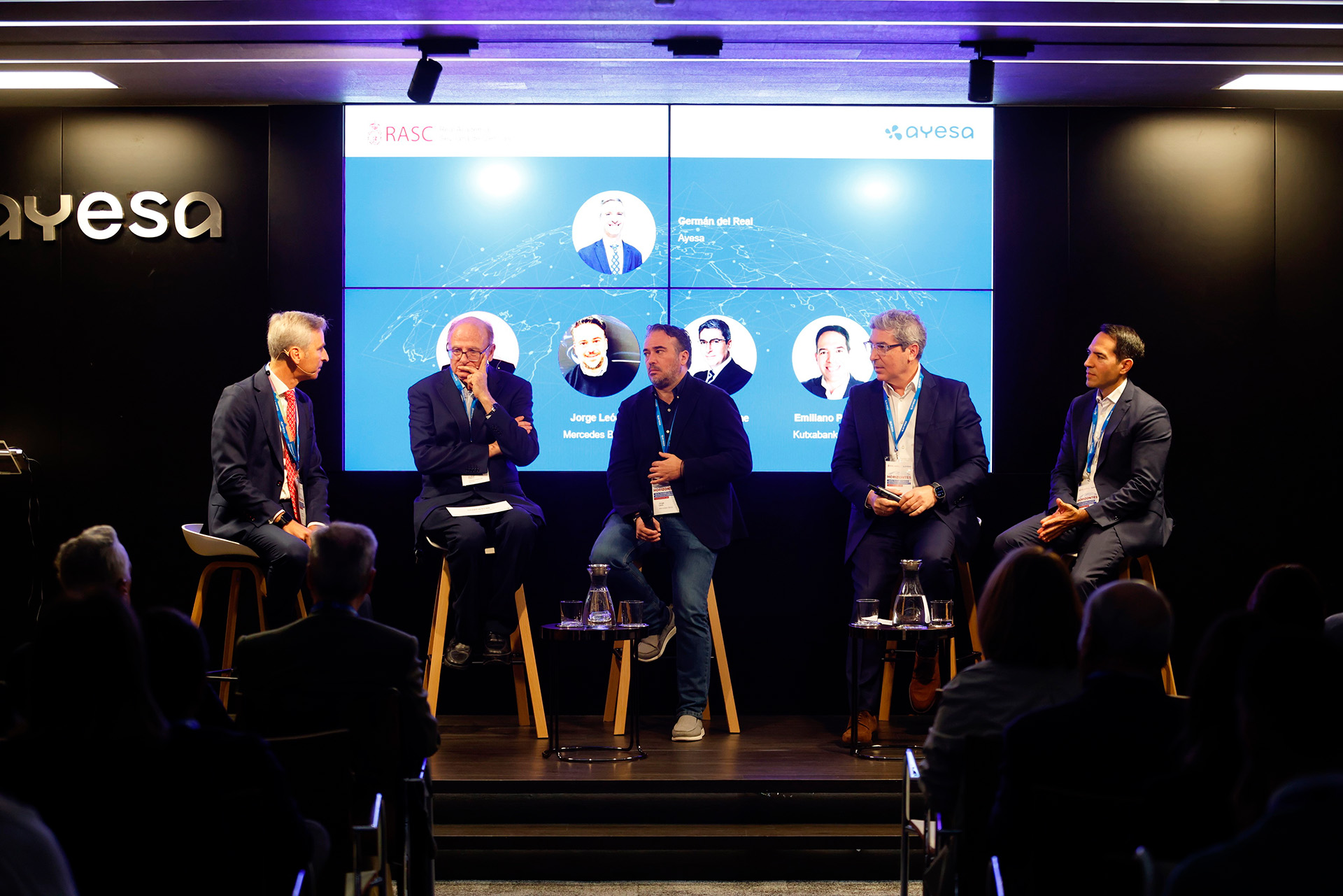
Germán del Real, general manager for Spain at Ayesa, opened the round table discussion with experts from the automotive, banking and manufacturing sectors, stating that AI has been in development for several decades, but the truth is that in recent years there has been an explosion in awareness of both this technology and others such as cloud computing. “Even if there is this public exposure of the concept, we are taking it slowly. And the associated ethical concepts are worrying”.
Jorge León, head of Advanced Analytics & Developments at Mercedes Benz, highlighted that “AI is transforming the user experience in the automotive sector. Today, driving a car is something completely different thanks to virtual assistants and the vehicle’s ability to learn from our behaviour. This benefits not only the driver, but also all passengers”.
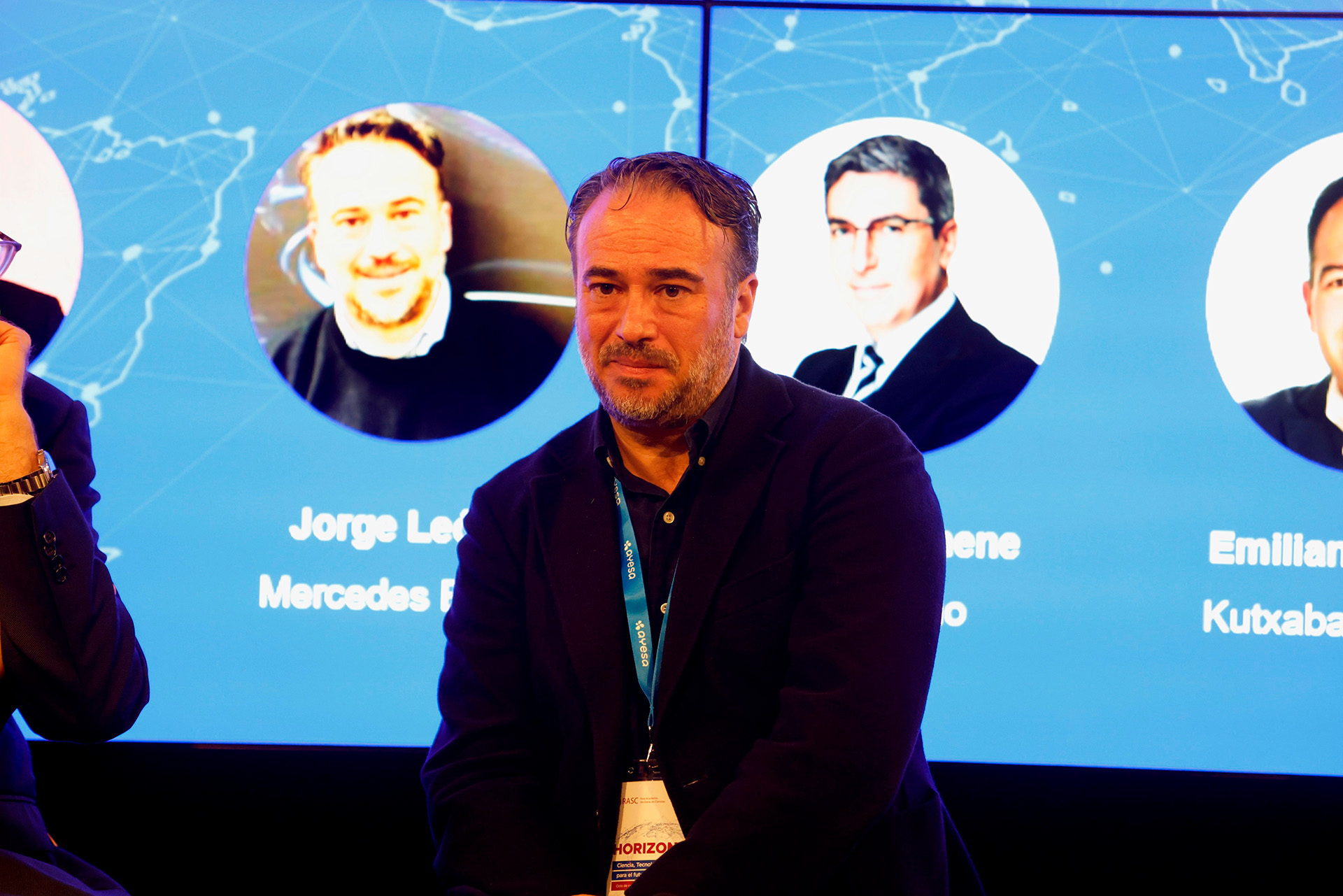
Along these lines, he indicated that “safety is improving with systems such as signal detection and driver monitoring, which can even stop the vehicle if there is no response. This is all part of the autonomous car, which is a reality in countries like the US, but in Europe we face greater ethical and legal restrictions. In this respect, he indicated that Mercedes is the only brand with a level 3 autonomy, the maximum allowed on the continent”.
In addition, he indicated that new services are being created through AI that improve the relationship with the customer and help in the company’s transformation. “The electric car forces us to change the model: it has 60% fewer parts than combustion vehicles and requires 30% less maintenance”.
At Cosentino, according to Rafael Domene, Chief Information Officer, AI is in almost every field of business. “We assist the R&D team in the development of new materials, as well as in production, logistics and distribution.” For the executive, AI will be used most to the advantage of agents: “We used to only deal with structured data and now with generative AI we can have another vision. Agents take control over parts of processes and we are economising on many tasks that were bottlenecks”.
He also added that “proper data management is a challenge. We implemented a data department, but realised that it was not enough. The data is the result of a process, so we are trying to add to the traditional data information from the process and automate as much as we can.”
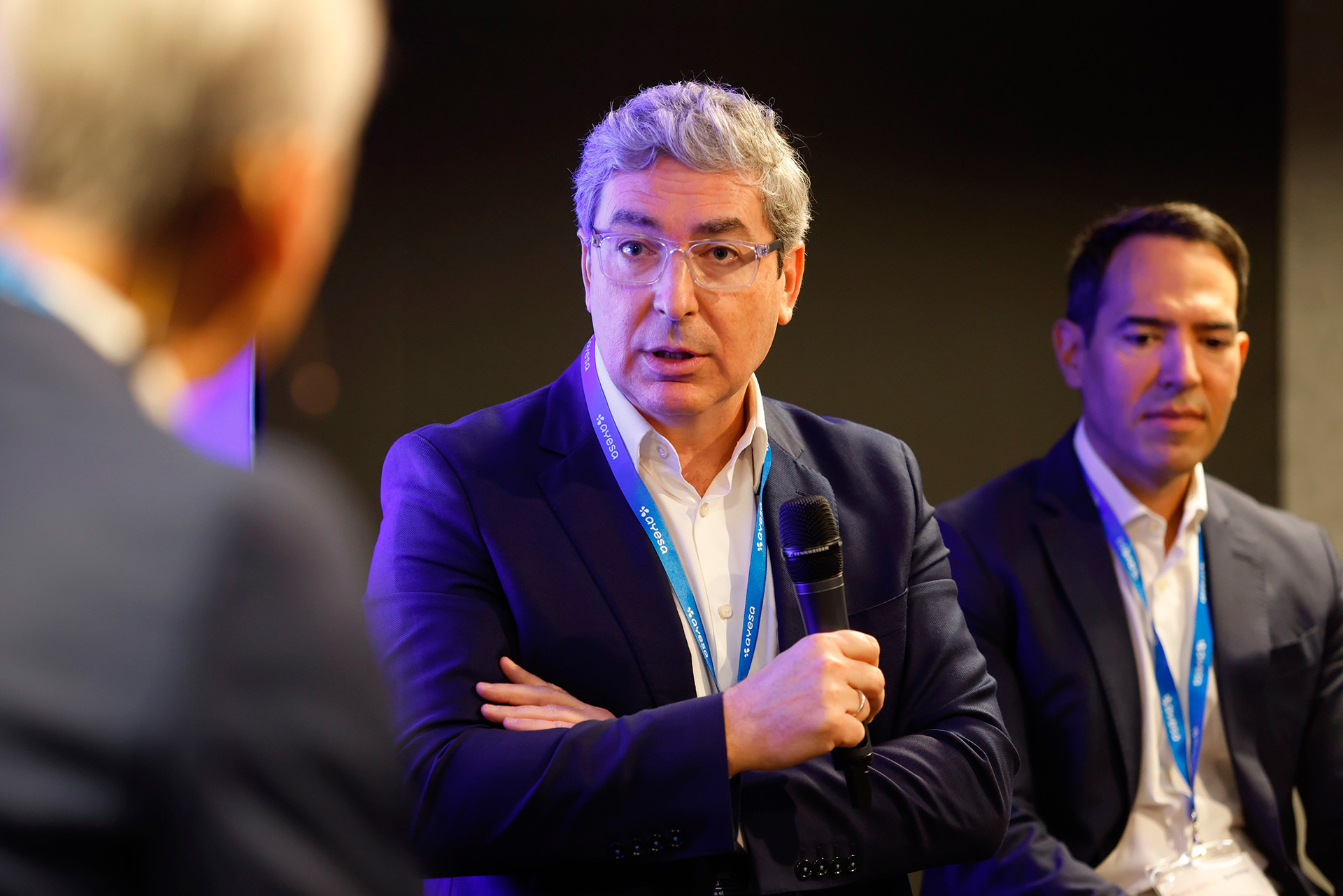
In the banking sector, agents are also gaining prominence. Emiliano Pozuelo, head of AI and Advanced Analytics at Kutxabank and Cajasur, explained that “there has been a dramatic change. Especially when it comes to availability. For example, we have made online and mobile banking secure, so that there is no fraud. We have an agent who is 99.8% accurate in ensuring that transactions are carried out legitimately. And now we are going to evolve it with quantum computing, with Ayesa. In the bank, we handle a lot of information and through a multi-agent system it is possible to determine what kind of documents need to be processed and to extract the relevant information that the system needs to supply. This is done with computer vision and generative AI. In other words, all the information is provided to the LLM (large language model) and it discriminates the information we are interested in”.
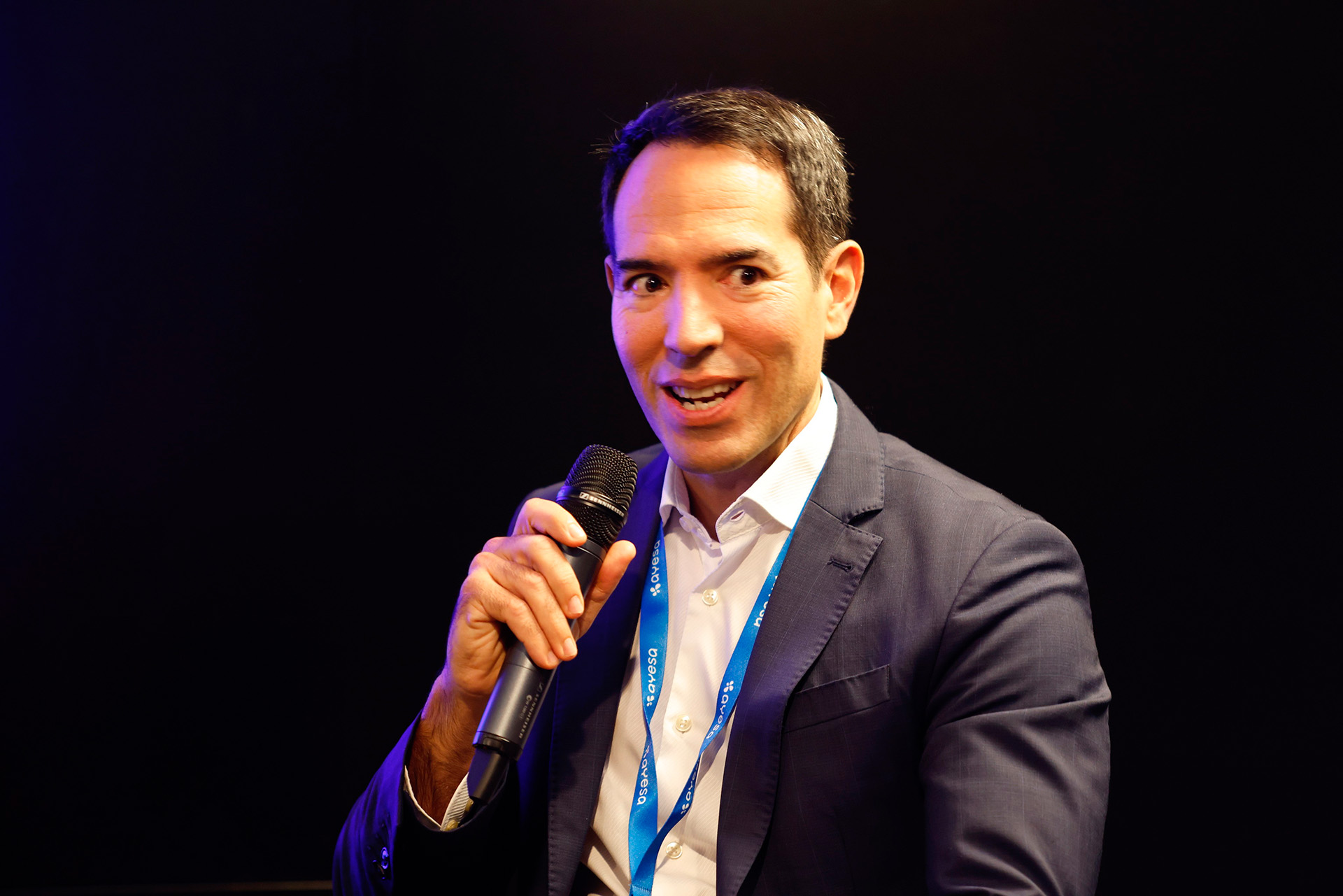
Lastly, Aníbal Ollero closed the session by pointing out that “generative AI has only begun to be applied; we will still see many failures. Materials need to be integrated, with mechanical modelling, control and AI”.
However, he regretted that in Spain “there is less and less money for research. Europe is a front-runner in some fields such as infrastructure inspection and maintenance or intelligent aerial robotics, but this may change, due to lack of investment”.
We support your projects
We are here for you, to advise you personally and offer you the product you need.